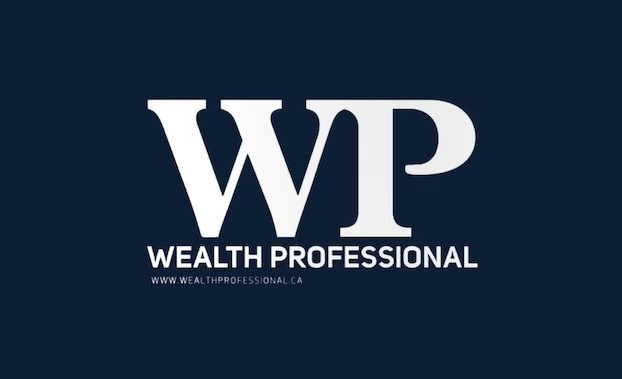Making A Difference for Canadian Investors
Author: Sarah Mawji | May 4, 2022
Two characteristics are re-defining the wealth management landscape: modern-day technology and investor-centric relationships.
The two go hand-in-hand and elevate the financial planning experience. This shift is making financial planning an easier and more enjoyable process for Canadians and today, clients expect no less from their financial advisors.
What quality of wealth service did investors experience prior to the pandemic?
Pre-pandemic – an annual meeting and an occasional portfolio review – is all that was expected and experienced by many investors, but this is no longer acceptable.
Additionally, back in 2020, Docusign was considered a transformational solution for some financial institutions – despite the technology itself having been around for ages. Today, having access to Docusign is also a baseline expectation from investors.
The landscape has shifted. Canadians have more access to financial information and guidance than ever before. This is largely due to the array of online mediums that are giving advisors and financial experts the ability to reach Canadians through their preferred modes of communication -predominantly social media, email and even SMS communications. While not all advice given online is accurate, many advisor ‘best practices’ are being vetoed and questioned because investors are coming to the table more informed.
Fuelled by information, investors are closely reviewing their advisor-relationships. Major issues are being identified and stem from advisors putting their financial gains, or their firms, at the forefront instead of their clients’.
With technology easing the call-to-action for change, investors are open to re-starting the wealth process with a new advisor and at a new firm. This is contributing to a change in the way investors see the wealth management market and will play a key role moving forward. But this also goes for advisors themselves. Technology is making the onboarding and transition process easier for advisors, giving them the opportunity to take their clients to a firm that can meet their needs and expectations, if their current firm cannot.
What investors expect from wealth advisors in 2022?
In 2022, investors want to be where their wealth is valued and with firms that offer a high-caliber experience.
Canadian investors experienced first-hand the lengths some firms and advisors chose to go to throughout the course of the pandemic. It underscored the need for sound financial advice and what was experienced has made a lasting imprint.
Today, advisors must be technologically-adept and understand digital communications at the same or a higher degree as their clients to make them an attractive candidate in the eyes of a prospective client. Having in-depth knowledge of modern communication styles and using a digital suite or hub to conduct business is now a prerequisite.
In the background, the largest generational wealth transfer is beginning to take place. Advisors will likely see younger and digital-first investors step on to the scene in the next few years. These clients, in particular, will expect seamless and turn-key processes. They will expect immediate access to their portfolio, to make changes, open new accounts or invest in new product offerings and with the click of a button. They will also want to log in and see changes made in real time given their tech-savvy nature.
Financial health is the cornerstone of positive well-being
Financial planners are responsible for 61% of the Canadian population’s wealth. Financial health is considered the cornerstone of positive well-being meaning advisors play a more crucial role in the lives of Canadians than realize.
This, coupled with improving financial literacy rates amongst Canadians, is putting advisors under a microscope.Advisors are being evaluated more thoroughly than ever before and being held to a higher standard.
Advisors demonstrating a lack of willingness to adapt and desire to provide a higher-level of financial care are being weeded out.
While nobody was capable of predicting the pandemic or the market volatility that came with it, investors looked to their advisors for guidance. This global event contributed to instability in the lives of many and now that the light at the end of the tunnel is being seen, clients are evaluating what their advisors did and didn’t do.
What does it mean to actually make a difference in this environment?
Advisors play an important role at every stage of the investment journey.
Aside from providing information on the various investment vehicles investors can use to build their wealth, advisors help to provide financial security, educate clients, expand philanthropic efforts, create new avenues for maximizing returns and are the go-to experts during financial emergencies.
Research suggests that most investors start with less than $25,000 when they first begin investing with an advisor. According to a recent study, over a 15 year period investors who worked with an advisor have almost four times the assets of investors who didn’t.
Advised clients are more successful at wealth-building because the benefits are more clear and tangible to reach when someone who knows the market on a professional level is helping you stay on track.
Whether it’s tax season or you want new private opportunities to invest in, a trusted advisor can walk you through what to do, what deadlines need to be met and what information needs to be filed. Advisors take away the burden of doing it yourself.
Future-proofing financial plans and wealth requires time, energy and a trusted relationship between investors and their advisor. In this next era of wealth management, technology is giving life to the strengthening of connections and removing past limitations. Remote work will continue to make technology an imperative piece of the puzzle and investor-centric relationships have become more necessary and a more natural step than ever before.



A Temporary Truce: The US-China Trade War
14 May 2025